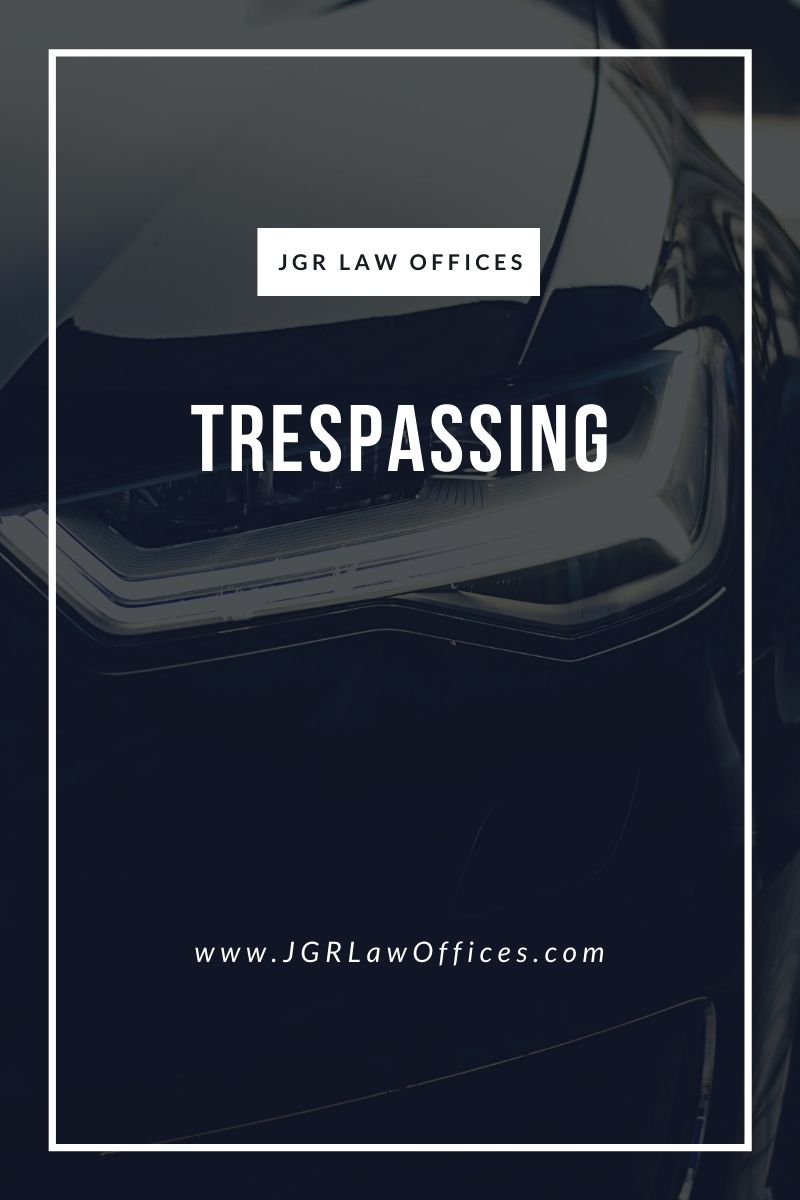Table of Contents
ToggleTrespassing
Trespassing can be brought against someone who unintentionally or intentionally enters another’s property. The investigation is usually initiated by the property owner, often via a 911 call. However, the criminal charges are brought against the defendant by the State of Washington (or the city, if the act took place within the city limits). Many times, people don’t realize they are Trespassing until confronted or receive a summons by mail several weeks or months later.
Washington has two levels of Trespassing. Both are misdemeanors. These are the elements of the charges:
RCW 9A.52.070
First degree criminal trespass
(1) Anyone who knowingly enters or stays illegally in a building is guilty of criminal theft in the first degree.
(2) A gross misdemeanor is criminal trespass in first degree.
RCW 9A.52.080
Criminal trespass in second degree
(1) Criminal trespass is a second-degree offense if someone knowingly enters or stays unlawfully on the premises of another person under circumstances that are not criminal trespass.
(2) The second degree of criminal trespass is a misdemeanor.
Both of these charges can be interpreted as “enter” meaning any part of your body. Or none if you’re holding an item that is entering into the property. If a person holds a stick and pushes the stick through a window, it is considered “entering” the premises. Also, the term “premises” can be used in a broad sense and includes any structure, dwelling, building or property used for commercial aquaculture or any other real property.
There are many ways to resolve a trespassing charge
Because they are misdemeanors, Trespassing cases can be handled in District or Municipal Courts. Because they are dealt with in the “lower” courts, there are other options than trial or pleading guilty to resolve Trespassing cases.
Pre-Trial Diversion Agreements are common in most jurisdictions. This is essentially a contract between the Defendant (or the Prosecuting Authority). This type of Diversion Agreement does not give a defendant a sentence. The Court approves the contract between the parties (the Prosecutor and the Defendant). The Trespassing case will be dismissed if the defendant follows the contract’s terms. The case is usually dismissed after a lengthy continuance. If all terms have been met, there will never be a conviction.
Another option is to enter into a Compromise of Murder. This is when the defense attorney for a defendant gets a signature of the property owner on a document which states that the property owner has waived any civil litigation against him and that he wishes the defendant not to be prosecuted. This is the fastest and most cost-effective way to dismiss a case for Trespassing.
A defendant can always go to trial if they do not wish to resolve the matter by a Diversion. A defendant can ask the Prosecutor at trial to prove all elements of the Trespassing charges beyond reasonable doubt.
Protect yourself from trespassing
If the case proceeds to trial, there are many statutory defenses against the Trespassing charge. The defendant can assert the following defenses:
(1) The building was demolished; or
(2) At the time of the trespass the premises were open to the public. The defendant also complied with all laws governing access or staying in the premises.
(3) The defendant believed reasonably that the owner would allow him to enter the property or stay there.
These defenses are not the only ones that can be used in court, but they are the “affirmatives” defenses as defined by the statute. You can also argue other defenses at trial, such as the lack of intent.
JGR Law Offices represents individuals who have been charged in WA with Trespassing.
